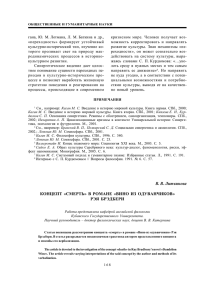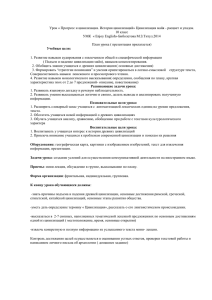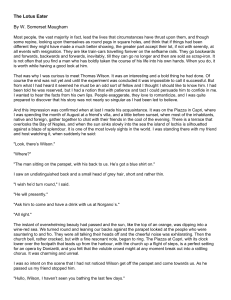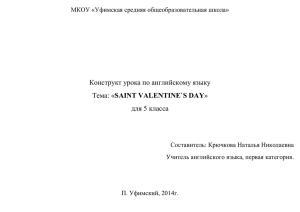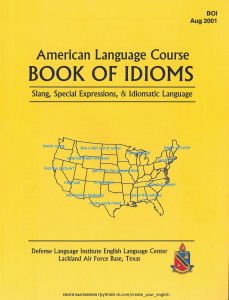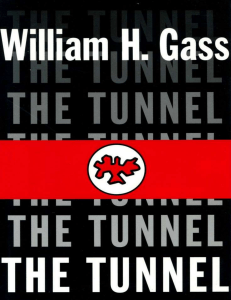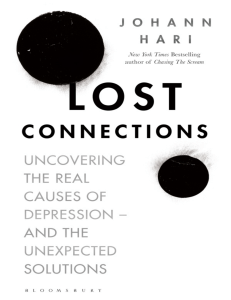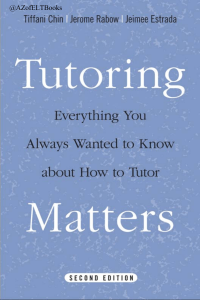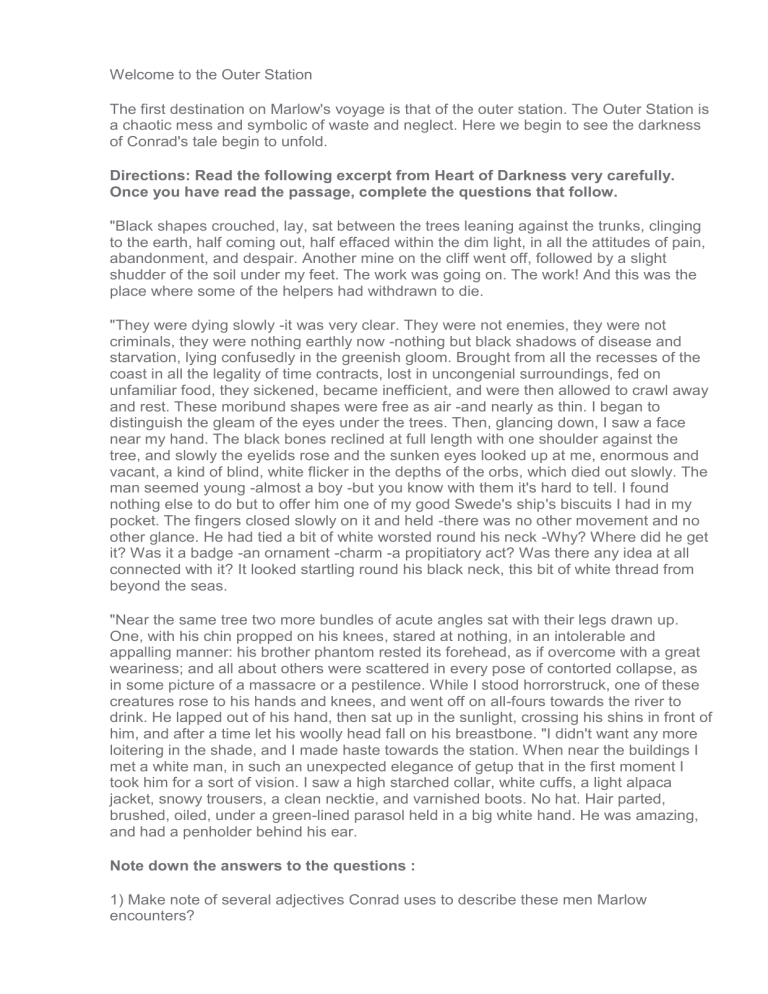
Welcome to the Outer Station The first destination on Marlow's voyage is that of the outer station. The Outer Station is a chaotic mess and symbolic of waste and neglect. Here we begin to see the darkness of Conrad's tale begin to unfold. Directions: Read the following excerpt from Heart of Darkness very carefully. Once you have read the passage, complete the questions that follow. "Black shapes crouched, lay, sat between the trees leaning against the trunks, clinging to the earth, half coming out, half effaced within the dim light, in all the attitudes of pain, abandonment, and despair. Another mine on the cliff went off, followed by a slight shudder of the soil under my feet. The work was going on. The work! And this was the place where some of the helpers had withdrawn to die. "They were dying slowly -it was very clear. They were not enemies, they were not criminals, they were nothing earthly now -nothing but black shadows of disease and starvation, lying confusedly in the greenish gloom. Brought from all the recesses of the coast in all the legality of time contracts, lost in uncongenial surroundings, fed on unfamiliar food, they sickened, became inefficient, and were then allowed to crawl away and rest. These moribund shapes were free as air -and nearly as thin. I began to distinguish the gleam of the eyes under the trees. Then, glancing down, I saw a face near my hand. The black bones reclined at full length with one shoulder against the tree, and slowly the eyelids rose and the sunken eyes looked up at me, enormous and vacant, a kind of blind, white flicker in the depths of the orbs, which died out slowly. The man seemed young -almost a boy -but you know with them it's hard to tell. I found nothing else to do but to offer him one of my good Swede's ship's biscuits I had in my pocket. The fingers closed slowly on it and held -there was no other movement and no other glance. He had tied a bit of white worsted round his neck -Why? Where did he get it? Was it a badge -an ornament -charm -a propitiatory act? Was there any idea at all connected with it? It looked startling round his black neck, this bit of white thread from beyond the seas. "Near the same tree two more bundles of acute angles sat with their legs drawn up. One, with his chin propped on his knees, stared at nothing, in an intolerable and appalling manner: his brother phantom rested its forehead, as if overcome with a great weariness; and all about others were scattered in every pose of contorted collapse, as in some picture of a massacre or a pestilence. While I stood horrorstruck, one of these creatures rose to his hands and knees, and went off on all-fours towards the river to drink. He lapped out of his hand, then sat up in the sunlight, crossing his shins in front of him, and after a time let his woolly head fall on his breastbone. "I didn't want any more loitering in the shade, and I made haste towards the station. When near the buildings I met a white man, in such an unexpected elegance of getup that in the first moment I took him for a sort of vision. I saw a high starched collar, white cuffs, a light alpaca jacket, snowy trousers, a clean necktie, and varnished boots. No hat. Hair parted, brushed, oiled, under a green-lined parasol held in a big white hand. He was amazing, and had a penholder behind his ear. Note down the answers to the questions : 1) Make note of several adjectives Conrad uses to describe these men Marlow encounters? 2) Contrast Marlow's impression of the man at the end of the passage with the others. This story takes place mostly in Africa during the late 1800s in an area known as the Congo. Search the web to answer the listed questions. Make notes! 1) In your own words explain what British colonization and imperialism are. 2) In addition to Great Britain, what other countries have colonized in Africa? What other countries were colonized by GB? Welcome to the Inner Station The third destination on Marlow's voyage is that of the Inner Station. He finally makes it here after being stranded for quite some time at the Central Station waiting to repair his boat. It is at the Inner Station where we will finally meet the legendary Kurt Directions: Read the following excerpt from Heart of Darkness very carefully. Once you have read the passage, complete the questions that follow. "I laid the ghost of his gifts at last with a lie," he began, suddenly. "Girl! What? Did I mention a girl? Oh, she is out of it -completely. They -the women I mean -are out of it -should be out of it. We must help them to stay in that beautiful world of their own, lest ours gets worse. Oh, she had to be out of it. You should have heard the disinterred body of Mr. Kurtz saying, 'My Intended.' You would have perceived directly then how completely she was out of it. And the lofty frontal bone of Mr. Kurtz! They say the hair goes on growing sometimes, but this -ah -specimen, was impressively bald. The wilderness had patted him on the head, and, behold, it was like a ball -an ivory ball; it had caressed him, and -lo! -he had withered; it had taken him, loved him, embraced him, got into his veins, consumed his flesh, and sealed his soul to its own by the inconceivable ceremonies of some devilish initiation. He was its spoiled and pampered favorite. Ivory? I should think so. Heaps of it, stacks of it. The old mud shanty was bursting with it. You would think there was not a single tusk left either above or below the ground in the whole country. 'Mostly fossil,' the manager had remarked, disparagingly. It was no more fossil than I am; but they call it fossil when it is dug up. It appears these niggers do bury the tusks sometimes -but evidently they couldn't bury this parcel deep enough to save the gifted Mr. Kurtz from his fate. We filled the steamboat with it, and had to pile a lot on the deck. Thus he could see and enjoy as long as he could see, because the appreciation of this favor had remained with him to the last. You should have heard him say, 'My ivory.' Oh, yes, I heard him. 'My Intended, my ivory, my station, my river, my --' everything belonged to him. It made me hold my breath in expectation of hearing the wilderness burst into a prodigious peal of laughter that would shake the fixed stars in their places. Everything belonged to him but that was a trifle. The thing was to know what he belonged to, how many powers of darkness claimed him for their own. That was the reflection that made you creepy all over. It was impossible -it was not good for one either -trying to imagine. He had taken a high seat amongst the devils of the land -I mean literally. You can't understand. How could you? -with solid pavement under your feet, surrounded by kind neighbors ready to cheer you or to fall on you, stepping delicately between the butcher and the policeman, in the holy terror of scandal and gallows and lunatic asylums -how can you imagine what particular region of the first ages a man's untrammeled feet may take him into by the way of solitude -utter solitude without a policeman -by the way of silence -utter silence, where no warning voice of a kind neighbor can be heard whispering of public opinion? These little things make all the great difference. When they are gone you must fall back upon your own innate strength, upon your own capacity for faithfulness. Of course you may be too much of a fool to go wrong -too dull even to know you are being assaulted by the powers of darkness. I take it, no fool ever made a bargain for his soul with the devil; the fool is too much of a fool, or the devil too much of a devil -I don't know which. Or you may be such a thunderingly exalted creature as to be altogether deaf and blind to anything but heavenly sights and sounds. Then the earth for you is only a standing place -and whether to be like this is your loss or your gain I won't pretend to say. But most of us are neither one nor the other. The earth for us is a place to live in, where we must put up with sights, with sounds, with smells, too, by Jove! -breathe dead hippo, so to speak, and not be contaminated. And there, don't you see? Your strength comes in, the faith in your ability for the digging of unostentatious holes to bury the stuff in -your power of devotion, not to yourself, but to an obscure back-breaking business. And that's difficult enough. Question to answer 1) What is Marlow's attitude about the women he references? 2) Briefly summarize the ivory trade in Africa during the time of the novella (late 1800s). Google if needed 3) What effect did this have on the African elephant population? Welcome to the Sepulchral City The last stop in Marlow's adventure is the Sepulchral City, a name Marlow uses to characterize Brussels, Belgium because he believes the people there with their lack of knowledge outside of themselves are living in a tomb-like atmosphere. Here he visits Kurtz's "intended." Directions: Read the following excerpt from Heart of Darkness very carefully. The passage is rather long but is mostly dialogue. Once you have read the passage, complete the questions that follow. "The dusk was falling. I had to wait in a lofty drawingroom with three long windows from floor to ceiling that were like three luminous and bedraped columns. The bent gilt legs and backs of the furniture shone in indistinct curves. The tall marble fireplace had a cold and monumental whiteness. A grand piano stood massively in a corner; with dark gleams on the flat surfaces like a somber and polished sarcophagus. A high door opened closed I rose. "She came forward, all in black, with a pale head, floating towards me in the dusk. She was in mourning. It was more than a year since his death, more than a year since the news came; she seemed as though she would remember and mourn forever. She took both my hands in hers and murmured, 'I had heard you were coming.' I noticed she was not very young -I mean not girlish. She had a mature capacity for fidelity, for belief, for suffering . . . . 'You knew him well,' she murmured, after a moment of mourning silence. " 'Intimacy grows quickly out there,' I said. 'I knew him as well as it is possible for one man to know another.' " 'And you admired him,' she said. 'It was impossible to know him and not to admire him. Was it?' " 'He was a remarkable man,' I said, unsteadily. Then before the appealing fixity of her gaze, that seemed to watch for more words on my lips, I went on, 'It was impossible not to --' " 'Love him,' she finished eagerly, silencing me into an appalled dumbness. 'How true! How true! But when you think that no one knew him so well as I! I had all his noble confidence. I knew him best.' " 'You knew him best,' I repeated. And perhaps she did. But with every word spoken the room was growing darker, and only her forehead, smooth and white, remained illumined by the inextinguishable light of belief and love. " 'You were his friend,' she went on. 'His friend,' she repeated, a little louder. 'You must have been, if he had given you this, and sent you to me. I feel I can speak to you -and oh! I must speak. I want you -you who have heard his last words -to know I have been worthy of him.... It is not pride.... Yes! I am proud to know I understood him better than any one on earth -he told me so himself. And since his mother died I have had no one no one -to -to --' "I listened. The darkness deepened. I was not even sure whether he had given me the right bundle. I rather suspect he wanted me to take care of another batch of his papers which, after his death, I saw the manager examining under the lamp. And the girl talked, easing her pain in the certitude of my sympathy; she talked as thirsty men drink. I had heard that her engagement with Kurtz had been disapproved by her people. He wasn't rich enough or something. And indeed I don't know whether he had not been a pauper all his life. He had given me some reason to infer that it was his impatience of comparative poverty that drove him out there. " '. . . Who was not his friend who had heard him speak once?' she was saying. 'He drew men towards him by what was best in them.' She looked at me with intensity. 'It is the gift of the great,' she went on, and the sound of her low voice seemed to have the accompaniment of all the other sounds, full of mystery, desolation, and sorrow, I had ever heard -the ripple of the river, the soughing of the trees swayed by the wind, the murmurs of the crowds, the faint ring of incomprehensible words cried from afar, the whisper of a voice speaking from beyond the threshold of an eternal darkness. 'But you have heard him! You know!' she cried. " 'Yes, I know,' I said with something like despair in my heart, but bowing my head before the faith that was in her, before that great and saving illusion that shone with an unearthly glow in the darkness, in the triumphant darkness from which I could not have defended her -from which I could not even defend myself. " 'What a loss to me -to us!' -she corrected herself with beautiful generosity; then added in a murmur, 'To the world.' By the last gleams of twilight I could see the glitter of her eyes, full of tears -of tears that would not fall. " 'I have been very happy -very fortunate -very proud,' she went on. 'Too fortunate. Too happy for a little while. And now I am unhappy for -for life.' "She stood up; her fair hair seemed to catch all the remaining light in a glimmer of gold. I rose, too. " 'And of all this,' she went on mournfully, 'of all his promise, and of all his greatness, of his generous mind, of his noble heart, nothing remains -nothing but a memory. You and I --' " 'We shall always remember him,' I said hastily. " 'No!' she cried. 'It is impossible that all this should be lost -that such a life should be sacrificed to leave nothing -but sorrow. You know what vast plans he had. I knew of them, too -I could not perhaps understand -but others knew of them. Something must remain. His words, at least, have not died.' " 'His words will remain,' I said. " 'And his example,' she whispered to herself. 'Men looked up to him -his goodness shone in every act. His example --' " 'True,' I said; 'his example, too. Yes, his example. I forgot that.' " 'But I do not. I cannot -I cannot believe -not yet. I cannot believe that I shall never see him again, that nobody will see him again, never, never, never.' "She put out her arms as if after a retreating figure, stretching them back and with clasped pale hands across the fading and narrow sheen of the window. Never see him! I saw him clearly enough then. I shall see this eloquent phantom as long as I live, and I shall see her, too, a tragic and familiar Shade, resembling in this gesture another one, tragic also, and bedecked with powerless charms, stretching bare brown arms over the glitter of the infernal stream, the stream of darkness. She said suddenly very low, 'He died as he lived.' " 'His end,' said I, with dull anger stirring in me, 'was in every way worthy of his life.' " 'And I was not with him,' she murmured. My anger subsided before a feeling of infinite pity. " 'Everything that could be done --' I mumbled. " 'Ah, but I believed in him more than any one on earth -more than his own mother, more than -himself. He needed me! Me! I would have treasured every sigh, every word, every sign, every glance.' "I felt like a chill grip on my chest. 'Don't,' I said, in a muffled voice. " 'Forgive me. I -I have mourned so long in silence -in silence.... You were with him -to the last? I think of his loneliness. Nobody near to understand him as I would have understood. Perhaps no one to hear....' " 'To the very end,' I said, shakily. 'I heard his very last words....' I stopped in a fright. " 'Repeat them,' she murmured in a heart-broken tone. 'I want -I want -something something -to -to live with.' "I was on the point of crying at her, 'Don't you hear them?' The dusk was repeating them in a persistent whisper all around us, in a whisper that seemed to swell menacingly like the first whisper of a rising wind. 'The horror! The horror!' " 'His last word -to live with,' she insisted. 'Don't you understand I loved him -I loved him -I loved him!' "I pulled myself together and spoke slowly. " 'The last word he pronounced was -your name.' "I heard a light sigh and then my heart stood still, stopped dead short by an exulting and terrible cry, by the cry of inconceivable triumph and of unspeakable pain. 'I knew it -I was sure!' . . . She knew. She was sure. I heard her weeping; she had hidden her face in her hands. It seemed to me that the house would collapse before I could escape, that the heavens would fall upon my head. But nothing happened. The heavens do not fall for such a trifle. Would they have fallen, I wonder, if I had rendered Kurtz that justice which was his due? Hadn't he said he wanted only justice? But I couldn't. I could not tell her. It would have been too dark -too dark altogether...." Questions : 1) Characterize Kurtz's fiancée. How does she feel about Kurtz? 2) Why do you think Marlow feels obligated to protect Kurtz's memory, especially to his "intended"? 3) What does he mean by the following: "I heard a light sigh and then my heart stood still, stopped dead short by an exulting and terrible cry, by the cry of inconceivable triumph and of unspeakable pain. 'I knew it -I was sure!' . . . She knew. She was sure. I heard her weeping; she had hidden her face in her hands. It seemed to me that the house would collapse before I could escape, that the heavens would fall upon my head. But nothing happened. The heavens do not fall for such a trifle. Would they have fallen, I wonder, if I had rendered Kurtz that justice which was his due? Hadn't he said he wanted only justice? But I couldn't. I could not tell her. It would have been too dark -too dark altogether...."? Google form for answers : https://docs.google.com/forms/d/1bpovoNQojfV3PPQCUgkkCkjL44LWb066xyhtaJlpMaI/edit
